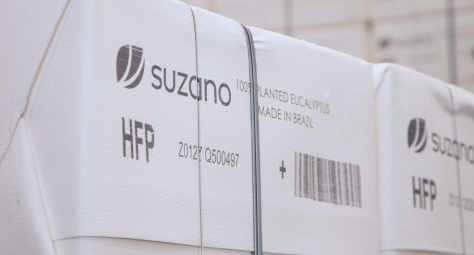sobre o que você deseja falar?


perguntas, sugestões ou problemas técnicos envolvendo a plataforma

informações sobre a empresa


Suzano's Tax Policy emphasizes developing strategies to manage the tax burden, always in compliance with current legislation. As a multinational that does business in several countries and is publicly traded, the company maintains a transparent relationship with public bodies and sector associations to generate value and revenue for tax authorities at the federal, state, and municipal tax authorities.
Suzano has established agreements and protocols of intent with state entities to optimize its tax burden following relevant legislation. In this context, the company actively participates in tax committees of several sector associations, including the Brazilian Tree Industry Association (Ibá), as well as in industrial federations such as the Federation of Industries of the States of Espírito Santo (Findes), São Paulo (Fiesp), and Maranhão (Fiema), among others. Additionally, Suzano is involved in specific groups, such as the Applied Tax Studies Group (Getap), to discuss these matters further.
Suzano's tax strategy is closely aligned with its current business operations and future plans. The company evaluates only those tax opportunities relevant to its business objectives. All tax-related decisions are based on the overall business strategy, which also influences commercial and operational results. In this context, while minimizing tax costs or impacts is an important consideration, it is just one of many factors considered in investment and business decisions rather than the primary focus.
Governance, control, and fiscal risk management
Suzano's Tax Conduct is supported by its Risk Management Standards, which outline the roles and responsibilities associated with taxation. The Audit Committee oversees the company's tax strategies and, when applicable, the Statutory Audit Committee. Any modifications to the Tax Conduct Policy require approval from the Finance Department. Additionally, Suzano's Tax Conduct Policy adheres to the tax regulations in all countries where it operates.
The company's business principles and those of its subsidiaries and affiliates must strictly adhere to the current tax and regulatory laws. These principles should align with the strategies set forth by Suzano's management, ensuring that all taxes owed are accurately calculated and paid in every jurisdiction where the company operates. The company's tax practices are guided by the highest standards of integrity and ethics, and all employees in the tax department are expected to use this guideline as the foundation for their work.
Suzano is committed to transparency and the accuracy of its tax information, which is available in its regularly published reports. To demonstrate this commitment, the company ensures that all relevant information regarding its tax obligations is presented clearly to the tax authorities in compliance with the applicable legislation.
| 2020 | 2021 | 2022 | 2023 | 2024 | |
|---|---|---|---|---|---|
| overall number | overall number | overall number | overall number | overall number | |
|
Number of employees and the basis for calculating this number² |
17,384 |
19,345 |
21,353 |
23,452 |
23,124 |
|
Revenues from sales to third parties (BRL) |
32,291,606,855.00 |
42,349,525,661.00 |
67,753,006,779 |
55,074,752,010 |
189,951,013,447 |
|
Income from intra-group transactions with other tax jurisdictions (BRL) |
24,576,037,975.00 |
27,525,821,283.00 |
32,719,601,632 |
28,459,696,772 |
76,655,045,562 |
|
Profit/loss before tax (BRL) |
-16,518,339,170.00 |
20,041,393,318.00 |
46,560,866,340 |
24,438,117,590 |
-10,838,450,563 |
|
Tangible assets other than cash and cash equivalents (BRL) |
162,174,614,181.00 |
167,741,002,699.00 |
69,240,045,428 |
71,030,313,582 |
93,362,502,922 |
|
Corporate income tax paid on a cash basis (BRL) |
999,147,024.00 |
136,276,891.00 |
388,202,260 |
389,622,413 |
475,506,347 |
|
Corporate income tax levied on profits/losses ³(BRL) |
264,150,882.00 |
366,141,608.00 |
607,859,957 |
435,011,454 |
1,365,598,640 |